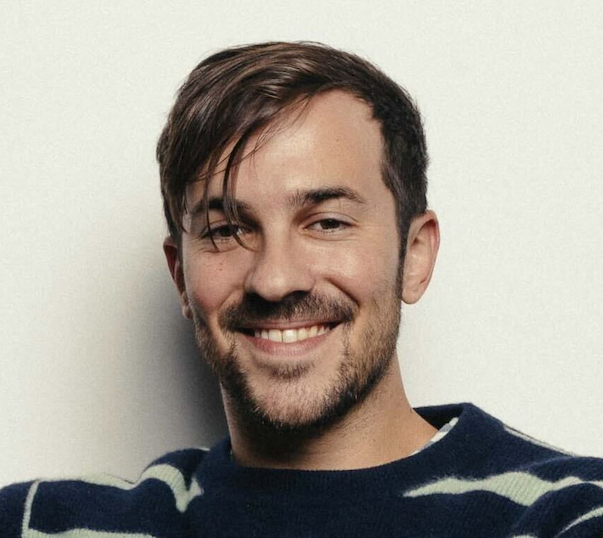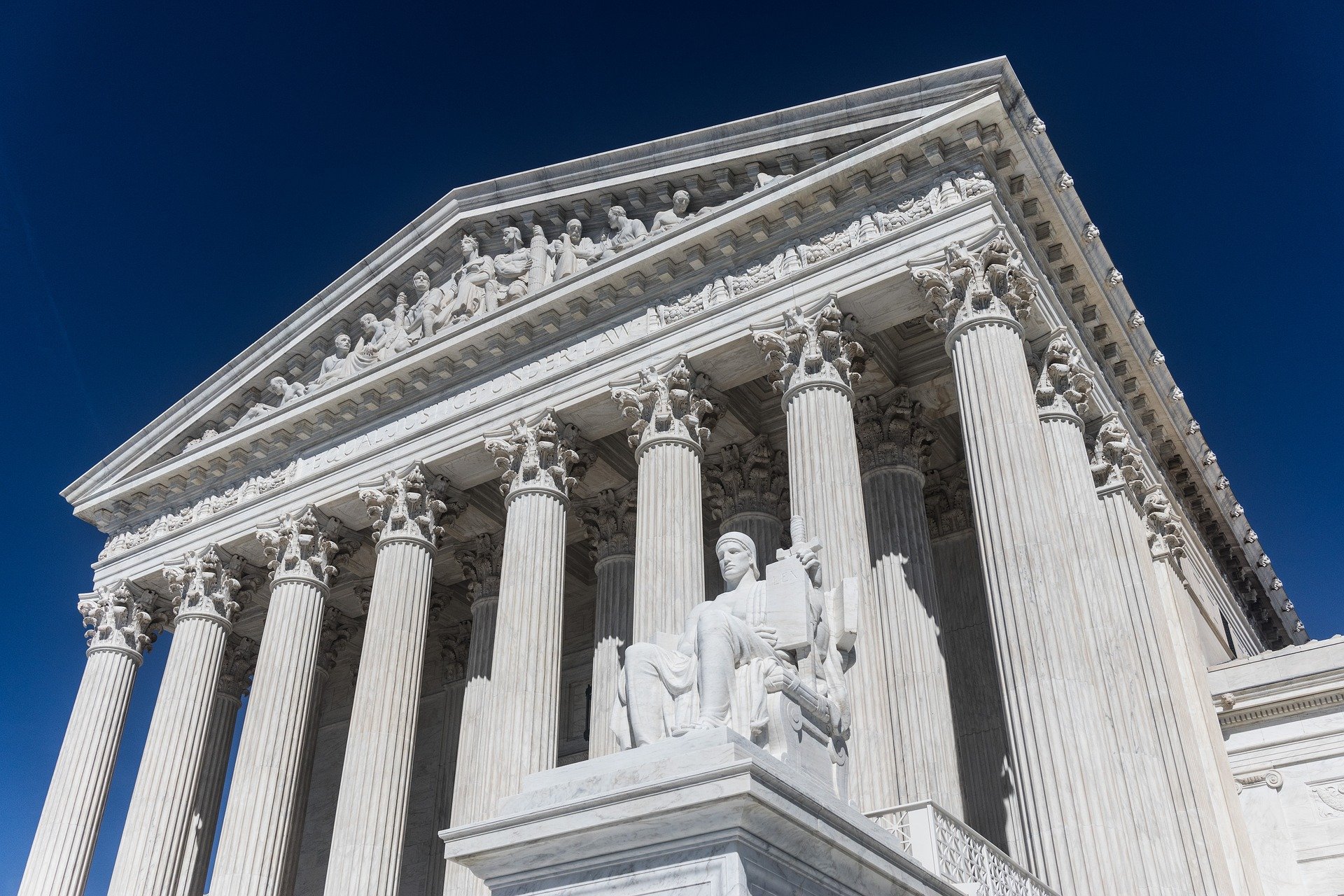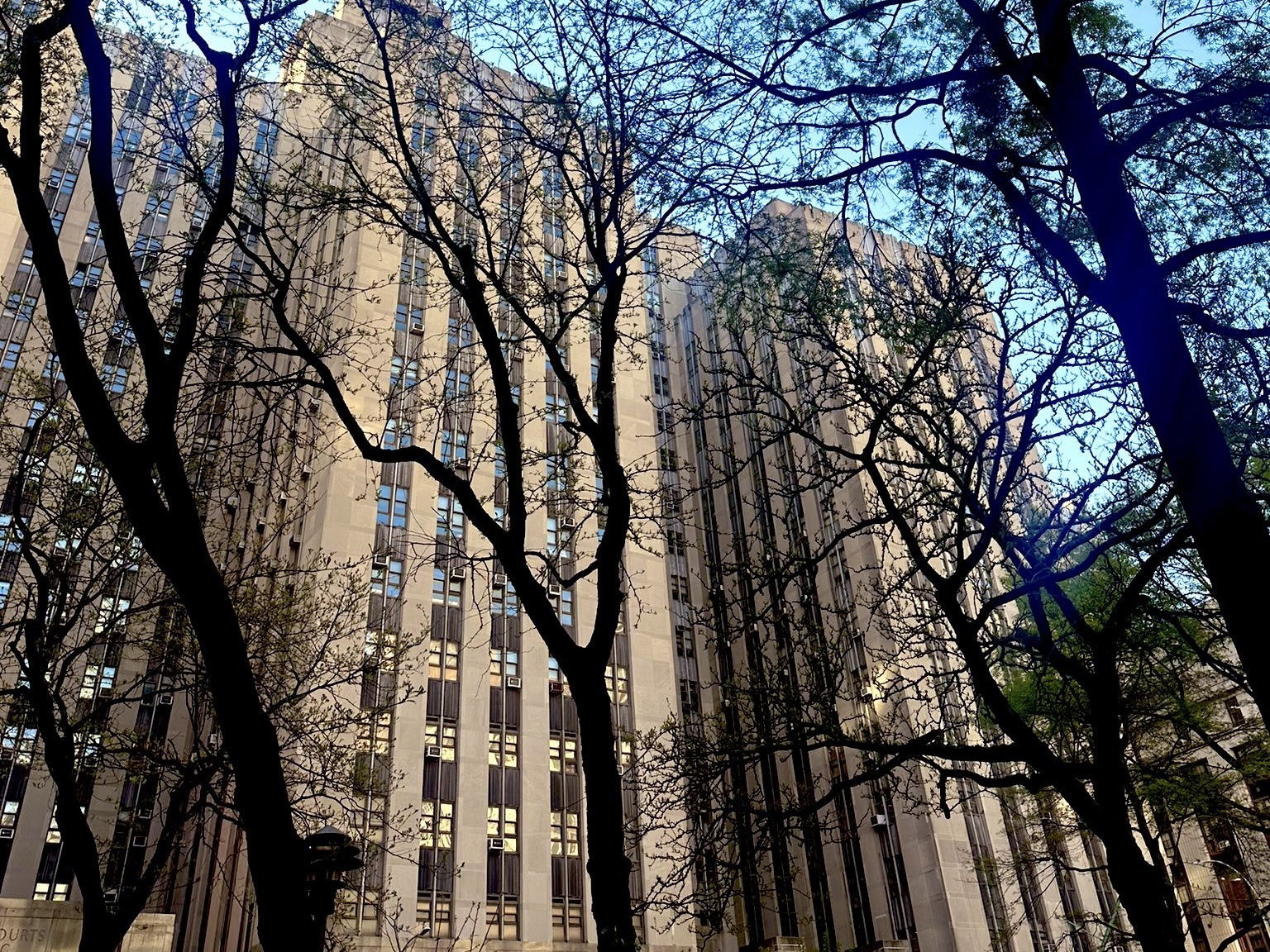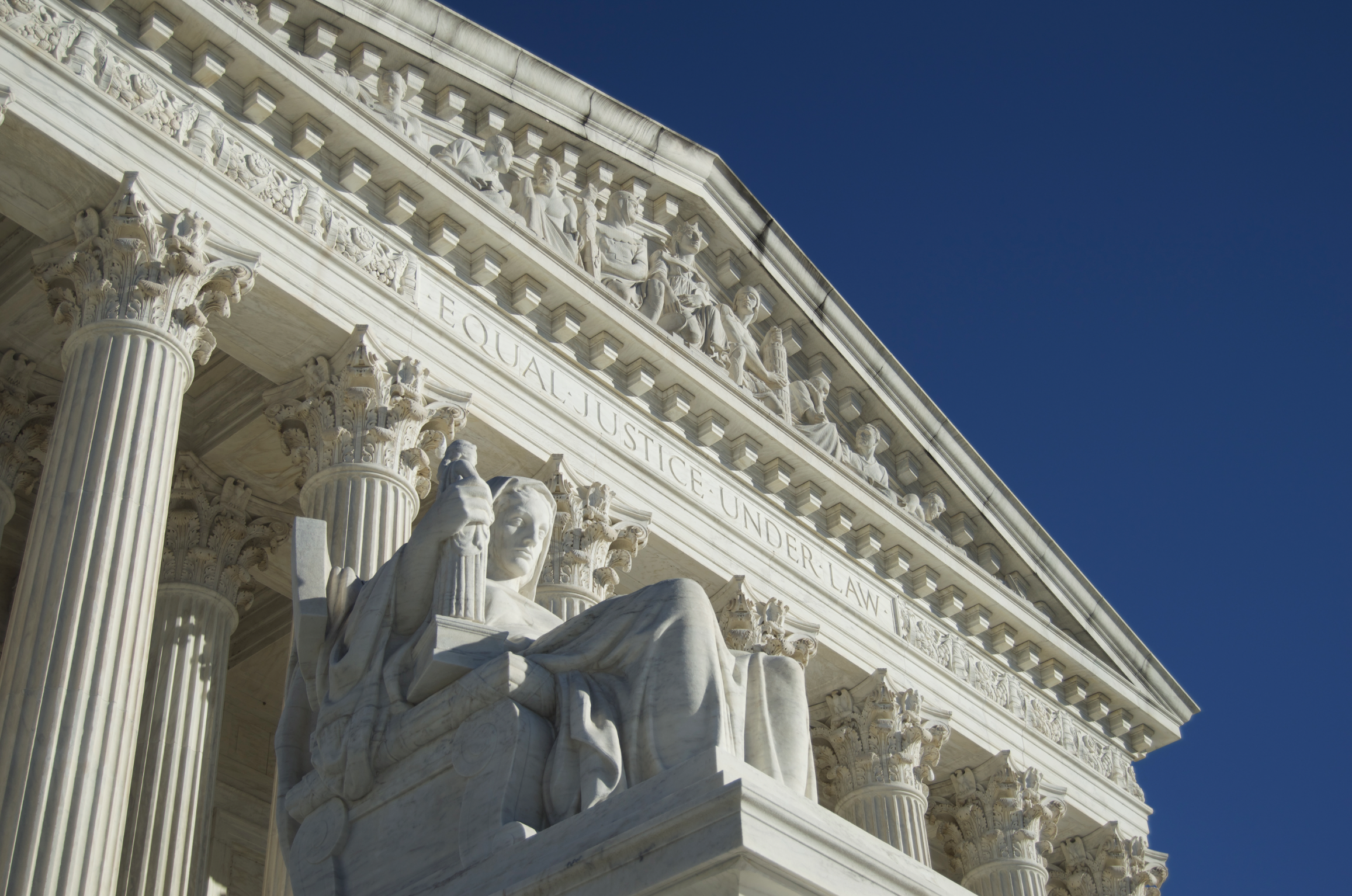How to Impanel a Jury in the Criminal Trial of a Former President
Selecting a jury of fair and impartial New Yorkers for former President Trump’s criminal trial will be difficult—but not impossible.
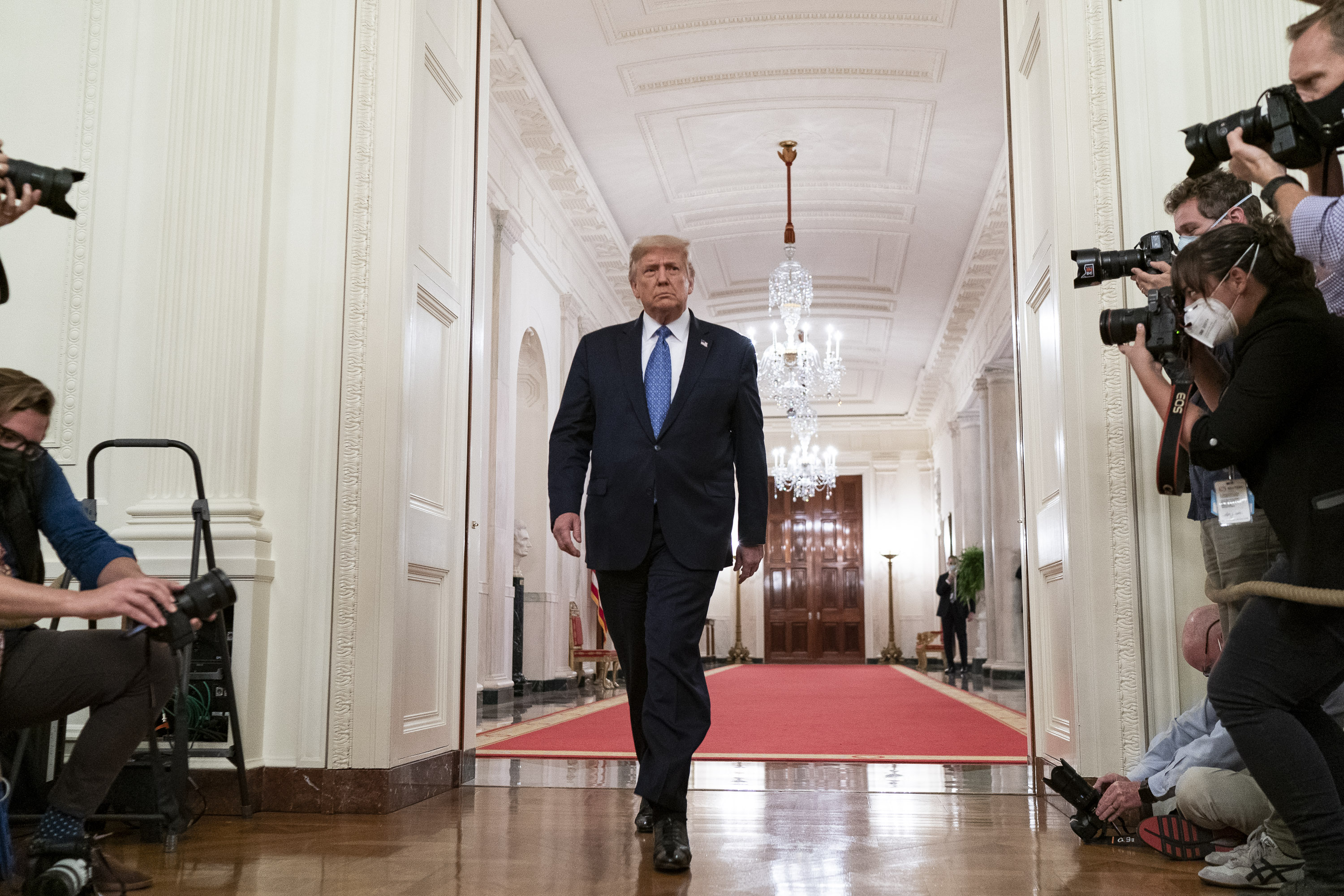
Published by The Lawfare Institute
in Cooperation With

On Monday, lawyers representing former President Donald Trump and the Manhattan District Attorney’s Office will embark on the unenviable task of choosing 18 fair and impartial New Yorkers—12 jurors and six alternates—to serve on the jury of the first criminal trial of a former president.
Jury selection can be tedious. It can also be interesting. But it’s always important. And, in this case, it will be no small feat.
In addition to the challenge of the defendant’s notoriety, the jury selection process will face a host of other logistical hurdles, such as Justice Juan Merchan’s order to keep the jurors’ identities hidden from the public. As Merchan noted in his April 8 letter laying out the jury selection process and questionnaire, “the process of summoning thousands of additional jurors and implementing the necessary measures to ensure that their identities remain anonymous is involved.” “Involved” is a bit of an understatement.
But though “involved” and difficult, the task is not impossible. For one, Merchan himself has impaneled a jury in Manhattan in a 2022 civil case involving the Trump Organization. Another jury sat for E. Jean Carroll’s civil suit against Trump even more recently.
But how will it work, and what will jurors be asked?
The Process
Jury selection for Trump’s New York criminal trial will largely follow typical procedures, with a few notable departures. On Monday, the several hundred New Yorkers who received jury summons will arrive at the courthouse at 100 Centre Street in Manhattan. The process could take between a few days and a couple weeks.
According to Justice Merchan’s letter, he will read the case caption—The People of the State of New York v. Donald J. Trump—and introduce the defendant and counsel. The judge will then read out the charges and an outline of the case. At a pretrial hearing on Feb. 15, Merchan invited the two sides to agree on a one paragraph case summary to read to prospective jurors, but, failing to reach consensus, the parties submitted separate versions instead. The court considered the submissions and then crafted what it believes to be a “fair and appropriate narrative of the case, including that the Defendant denies the allegations.” The pithy summary reads:
The Defendant, Donald Trump, is charged with 34 counts of Falsifying Business Records in the First Degree.
The allegations are in substance, that Donald Trump falsified business records to conceal an agreement with others to unlawfully influence the 2016 presidential election. Specifically, it is alleged that Donald Trump made or caused false business records to hide the true nature of payments made to Michael Cohen, by characterizing them as payment for legal services rendered pursuant to a retainer agreement. The People allege that in fact, the payments were intended to reimburse Michael Cohen for money he paid to Stephanie Clifford, also known as Stormy Daniels, in the weeks before the presidential election to prevent her from publicly revealing details about a past sexual encounter with Donald Trump.
Donald Trump has pleaded not guilty and denies the allegations.
Merchan will then explain what an indictment is, his procedure for jury selection, the jurors’ role, what it means to be fair, a few basic principles of law, and some other things. He plans to inform potential jurors that the observance of Passover will not preclude their service, and he will read out a list of potential witnesses, as well as other people who may be mentioned over the course of the trial.
Finally, Merchan will conclude the preliminaries with an invitation to potential jurors to raise their hand if they feel they have “an honest, legitimate and good faith reason to believe” they cannot be fair or impartial, noting that quotidian work, school, or childcare responsibilities won’t cut it.
Here marks the first notable departure from typical process. Informed by his experience presiding over the New York civil trial involving the Trump Organization in 2022, Justice Merchan had initially proposed at a pretrial hearing on Feb. 15 that the court dismiss these self-identifying jurors without allowing counsel from either side to interview them on their reasoning. Back in 2022, Merchan had also suggested this arrangement, but defense counsel objected. The parties proceeded with business as usual for the first jury panel, but after a “time consuming and unproductive” experience, the defense consented to dispensing with individual interviews, which “accelerated the process significantly.”
History nearly repeated itself on Feb. 15, when Trump’s lead defense attorney Todd Blanche objected to Merchan’s battle-tested proposal, instead putting forth his own “hybrid” approach, though the details were not immediately clear. One of the authors captured the scene in a dispatch from that hearing:
Sensing either hypocrisy or inconsistency in the defense’s “hybrid” suggestion to jury selection, [Assistant District Attorney Joshua] Steinglass rises to say that he finds it “ironic” that defense counsel expresses concerns about the duration of the trial while at the same time suggesting to “individually voir dire every juror who is content to leave if they say they can’t be fair and impartial”—a proposition Steinglass calls a “time consuming charade.”
“I’m not trying to be ironic,” Blanche says, to his credit, without a hint of irony. “Selecting a jury, a fair and impartial jury, is not a charade.”
But Justice Merchan seems to be decided on this issue as well, worried that such a hybrid approach would leave “too much room for error.”
Noting this exchange in his letter, Justice Merchan explained that because “no practical alternative was offered,” the court would dispense with individually interviewing these self-identifying jurors.
Also notable is the court’s March 7 protective order prohibiting the public disclosure of jurors’ identities and personal information. Merchan again invited the two sides to agree on proposed neutral explanations and limiting instructions to read to the jury, and, having failed again, the defense and prosecution submitted their own versions. Trump didn’t want the court to read a proposed instruction to jurors at all, unless they expressed specific concerns. Merchan disagreed, and the Commissioner of Jurors drafted an instruction that will inform jurors that the court will refer to them by a letter and number (for example, A1 or B200), rather than by their names.
The court also drafted an instruction based on the two sides’ submissions, which Merchan will read to jurors “if necessary”:
The Court and both parties in this matter have agreed that your names will not be publicly disclosed. Further, your addresses will not be shared with anyone other than counsel for the parties. We are doing this to preserve your privacy and to protect your identities from members of the public. You must not draw any inferences, in favor or or against either party as a result of this Order.
The Questionnaire
Given its importance, the questionnaire elicited some spirited debate between the two sides. Justice Merchan referenced one of those exchanges in his April 8 letter. At the Feb. 15 hearing, after a bit of question-by-question jockeying, Blanche attempted to distill the disputes into a single question. “There’s a 12-page questionnaire, but what we really want to know, and what they really want to know,”—Blanche said as he gestured toward the prosecution—“is, ‘Do you like President Trump?’” In his letter, Merchan made plain that, “contrary to defense counsel’s arguments, the purpose of jury selection is not to determine whether a prospective juror likes or does not like one of the parties.” These questions are irrelevant, Merchan argued, because the “ultimate issue is whether the prospective juror can assure us that they will set aside any personal feelings or biases and render a decision that is based on the evidence and the law.”
After weighing both sides, the court arrived at a 42-item questionnaire, which we have annotated below.
Text in italics is quoted verbatim from the questionnaire.
JUROR QUESTIONNAIRE
Each juror who is seated in the jury box will be asked to answer the following 42 questions, beginning with the juror in seat number 1. Please do not read the questions aloud, that is not necessary. Simply state the number of the question and answer each question, one after the other, in a loud clear voice. Depending on your answer, we may ask you follow-up questions. When you are finished answering all the questions, we will move on to the next seated juror until every juror has had the opportunity to answer.
1. A. Without telling us your address, in what neighborhood do you live? For example, Upper East Side, Lower West Side, Inwood, etc.
B. How long have you lived there?
C. Are you a native New Yorker? If not, where did you live previously?
Note here that the court is being careful not to put juror-identifying information on the record. The instruction not to disclose one’s address is bolded.
The inquiry as to whether the prospective jurors are native New Yorkers or transplants reflects, the authors suspect, the fact that jurors who hail from particularly red states might be much more attractive to the defense than native New Yorkers. Conversely, a native Vermonter who moves to the Big Apple might be curiously attractive to the prosecution.
2. A. What do you do for a living?
B. How long have you been doing that?
C. If you are retired, please tell us what you did before you retired.
Basic demographics here. We want to avoid journalists, political operatives, party hacks, and others whose career choices might suggest engagement with or bias about the subject matter. In this case, that set of career paths is vast. People in the real estate business may have strong feelings about Trump. So may folks whose lines of work his policies affected. The nonspecificity of the question here is designed to flag lines of work that may spark concern on the part of either side.
3. A. Who is your current employer?
B. How large is your current employer?
C. Are you self-employed or own your own business?
D. Who was your prior employer?
Same thing here. The questionnaire is looking to identify people whose employer, as opposed to whose career path, raises questions. Work for a large company that’s done business with the Trump Organization? Work for a contractor that helped build Trump Tower? Work for any of the gazillion of press or media organizations in New York City? You’re probably not getting on this jury. We’re looking for employees of small businesses way uptown that have nothing to do with Trump—maybe that deliver sandwiches to a 10 square block area in Washington Heights.
4. What is your educational background? For example, high school diploma, college degree, graduate degree, etc.
The litigators in this case know that the higher the level of educational attainment, the more hostile a given person is likely to be toward Trump. Got a graduate degree? You’re not getting on this jury.
5. A. Are you married?
B. Have you ever been married?
C. Do you have any children?
This is actually an important question. Think about the allegations in this case—falsifying business records to cover up an affair with a porn star while the defendant’s wife was pregnant. Kind of important for the defendant not to have too many happily married people with kids on the jury. On the other hand, the prosecution wants a jury that’s going to be disgusted by Trump’s behavior. Look for the prosecution to be into jurors with big families who all get along and never have affairs.
6. A. If you are married, or living with another adult, what does that person do for a living?
B. If you have adult children, what do they do?
More demographics.
7. A. What do you like to do in your spare time?
B. Do you have any interests or hobbies?
The exact purpose of this question is unclear. It might be an effort to smoke out jurors whose hobbies are suggestive of strong political views. Avid hunters, for example, might be much more apt to support the former president than those who spend their spare time doing clinic defense.
8. A. Do you participate in any organizations or advocacy groups?
B. Which ones?
This one’s clearly fishing for that sort of thing.
9. A. Have you ever served on a jury before? If you did, please tell us how long ago that was and whether that was in Criminal Court, Civil Court, or Grand Jury.
B. Without telling us the verdict, please tell us whether the jury reached a verdict.
Interesting question. The defense, remember, is not necessarily looking for an acquittal. A hung jury would be just fine with Trump. So asking whether a prospective juror was part of a successful jury team is a clever question. Are you an obstreperous loner who can’t make decisions with others? The defense wants you on this jury. The prosecution doesn’t.
10. Which of the following print publications, cable and/or network programs, or online media such as websites, blogs, or social media platforms do you visit, read, or watch? (Read aloud)
- New York Times
- Wall Street Journal
- USA Today
- New York Post
- New York Daily News
- Newsday
- Huffington Post
- Washington Post
- CNN
- Fox News
- MSNBC
- Newsmax
- MSN
- Yahoo
- Truth Social
- X
- I do not follow the news
- Tik Tok
- Other (name)
This one is very interesting, a clear effort to identify juror politics using prospective juror media consumption. The court won’t ask whether a juror likes Trump or not, but it can ask whether that juror gets his or her news from Truth Social, TikTok, or the New York Times.
11. Do you listen to or watch podcasts? If so, which ones?
While the authors hope the prospective jurors listen to the Lawfare Podcast, we suspect the lawyers are more interested in whether they listen to Michael Cohen’s podcast.
12. Do you listen to talk radio? If so, which programs?
This is an effort to identify hard-right jurors, talk radio being almost entirely the province of the political right.
13. Have you, a relative, or a close friend ever been the victim of a crime? If so, please briefly tell us what happened?
Very standard question. Designed to elicit strong antipathy to the defense.
14. Have you, a relative, or a close friend ever been employed by a law enforcement agency? For example, the police, FBI, District Attorney’s Office, Department of Correction, etc.
This is also a common question, though it takes on particular salience here, because on the one hand, Trump has accused so many law enforcement agencies, including the District Attorney’s Office and the FBI, of conspiring to get him. But on the other hand, the defense will likely favor rank-and-file police officers.
15. Have you, a relative, or a close friend ever been employed by a federal, state, or any local government, including but not limited to the State of New York?
More demographics. The defense wants to make sure there are no deep staters on this jury. The prosecution would love a jury made up of civil servants.
16. Have you, a relative, or close friend ever been employed in the accounting or finance field?
This is actually an important question. Remember that the alleged crime here involves falsifying business records to mask transactions to reimburse Cohen for the Stormy Daniels payoff as payment for legal work. A person who works in accounting might bring particularly strong feelings about such falsifications—either repulsion at such behavior or a sense that it’s done all the time and no big deal. We suspect neither the defense nor the prosecution will want people with accounting expertise interposing their own judgments about whether this crime matters.
17. Have you, a relative or close friend ever had any education, training, or work experience in the legal field, including but not limited to practicing criminal or civil law?
Ditto here. Lawyers and people who work in the legal system are often disfavored as jurors. Here part of the evidence involves faux legal practice—to wit, Cohen pretending to do legal work when he was actually moving to cover up Trump’s affairs and billing as a lawyer what was actually a reimbursement for his bag man services. Lawyers, like accountants, might bring biases to the table about such things.
18. A. Have you, a relative, or close friend had any experience or interaction with the criminal justice system, including a police officer or other type of law enforcement agent, which caused you to form an opinion, whether positive or negative, about the police or our criminal justice system?
B. If so, what was that experience?
C. Would that experience prevent you from being a fair and impartial juror in this case?
Very typical question.
19. Have you, a relative, or a close friend ever been accused or convicted of committing a crime?
Ditto.
20. Do you, a relative, or a close friend have a pending criminal case?
Ditto.
21. A. Do you have any political, moral, intellectual, or religious beliefs or opinions which might prevent you from following the Court’s instructions on the law or which might slant your approach to this case?
B. Do you have any political, moral, intellectual or religious beliefs or opinions that would interfere with your ability to render a verdict in this criminal case?
Standard question as well, but it really reads differently when the defendant is running for president.
22. Do you have a health condition that might interfere with your ability to be here on the appointed days and times or otherwise prevent you from serving as a juror?
Standard question in a case that will take weeks.
23. Without telling us the name(s), do you take any medication that would prevent you from being able to concentrate or pay attention during the proceedings or during the deliberations?
Standard.
24. Court proceedings normally end around 4:30 in the afternoon though on rare occasions, we might work beyond that. Would your schedule and responsibilities permit you to work later if it were absolutely necessary to complete that day’s work?
Trying here to weed out problem jurors who are going to require annoying accommodations that hold things up.
25. Do you practice a religion that would prevent you from sitting as a juror on any particular weekday or weeknight?
The court has promised that celebrating Passover will not prevent jury service. But Orthodox Jews also may have to leave early on Fridays, and religious Muslims have Friday prayers as well. Juror religiosity can impact the court’s scheduling.
26. Can you give us an assurance that you will be fair and impartial and not base your decision in this case upon a bias or prejudice in favor of or against a person who may appear in this trial, on account of that person’s race, color, national origin, ancestry, gender, gender identity or expression, religion, religious practice, age, disability, sexual orientation or political views?
The court can’t have jurors who will make adverse inferences against the defendant on account of his being a rich white male.
27. Can you promise to guard against allowing stereotypes or attitudes about individuals or about groups of people, referred to as an implicit bias, influence your decision?
The court also can’t have jurors who will make adverse inferences against the defendant on account of more diffuse criteria—for example, that people “like him” tend to commit crimes.
28. Have you, a relative, or a close friend ever worked for any Company or organization that is owned or run by Donald Trump of anyone in his family?
Let’s strip the veneer off of these venire questions and get down to brass tacks.
29. A. Have you, a relative, or a close friend ever worked or volunteered for a Trump presidential campaign, the Trump presidential administration, or any other political entity affiliated with Mr. Trump?
B. Have you ever attended a rally or campaign event for Donald Trump?
C. Are you signed up for or have you ever been signed up for, subscribed to, or followed any newsletter or email listserv run by or on behalf of Mr. Trump or the Trump Organization?
D. Do you currently follow Donald Trump on any social media site or have you done so in the past?
E. Have you, a relative, or a close friend ever worked or volunteered for any anti-Trump group or organization?
F. Have you ever attended a rally or campaign event for any anti-Trump group or organization?
G. Are you signed up for or have you ever been signed up for, subscribed to, or followed any newsletter or email listserv run by or on behalf of any anti-Trump group or organization?
H. Do you currently follow any anti-Trump group or organization on any social media site, or have you done so in the past?
Note that while it is improper to ask people their political affiliations or for whom they vote, it is not improper to ask them about their behavior around such matters. So this question doesn’t ask about voting behavior or party affiliation. It asks instead about work for and engagement with pro- and anti-Trump organizations and campaigns. It is designed to be exactly parallel. Each question is asked twice, once about pro-Trump activity and once about anti-Trump activity. Any juror who answers yes to any of these questions will attract scrutiny from one side or another. Again, we’re looking for those New Yorkers who are too busy delivering groceries to have engaged on Twitter on political matters, much less to have attended any kind of rally.
30. Have you ever considered yourself a supporter of or belonged to any of the following:
- the QAnon movement
- Proud Boys
- Oathkeepers
- Three Percenters
- Boogaloo Boys
- Antifa
One of these things is not like the others.
Can you guess which answer was put in by the defense?
31. Do you have any strong opinions or firmly held beliefs about whether a former president may be criminally charged in state court?
This question is clearly designed to identify jurors who have given thought to the legal issues of the case.
32. Do you have any feelings of opinions about how Mr. Trump is being treated in this case?
Similarly, this one tries to identify people who have been exposed to media arguing that Trump is being treated unfairly.
33. Can you give us your assurance that you will decide this case solely on the evidence you see and hear in this courtroom and the law as the judge gives it?
Standard question.
34. Do you have any strong opinions or firmly held beliefs about former President Donald Trump, or the fact that he is a current candidate for president that would interfere with your ability to be a fair and impartial juror?
Want to get off this jury real freakin’ fast? Just say yes to this one.
35. Have you read (or listened to audio) of any of the following books or podcasts by Michael Cohen or Mark Pomerantz? If so, please let us know if what you have heard or read affects your ability to be a fair and impartial juror in this case.
- Disloyal: A Memoir (2020)
- Mea Culpa (the podcast)
- Revenge 2022
- People Vs. Donald Trump (2023)
Don’t kid yourself. You’ve read these books or listened to this podcast? Gedouddaheah!
36. The defendant in this case has written a number of books. Have you read (or listened to audio) of any one or more of those books? If so, which ones?
That’s a no-no too. You read one of Trump’s books? Nobody does that except people who like him too much.
37. Do you have any opinions about the legal limits governing political contributions?
Again, can’t have anyone who knows anything about campaign finance law on this case. We gotta say, though, anyone who’s going down over this question has already said a million things that will get her struck over the first 36 questions. Nobody has strong feelings about campaign law who doesn’t also have strong feelings about Trump, for example.
38. Can you promise to set aside anything you may have heard or read about this case and render your verdict based solely on the evidence presented in this courtroom and the law as given to you by the judge?
Standard in high-profile cases.
39. Can you give us your absolute assurance that you will refrain from discussing this case with anyone in any manner and from watching, reading, or listening to any accounts of this case during the pendency of the trial?
Ditto, though framed in very strong terms.
39. Can you assure us that you will follow the judge’s instructions on the law, including instructions on the definition of reasonable doubt and the presumption of innocence?
Standard.
41. The United States Constitution provides that a defendant has no burden to introduce any evidence or to testify in a criminal case. If Mr. Trump chooses not to testify, or to introduce any evidence, can you give us your assurance that you will not hold that against him?
Standard.
42. Is there any reason, whether it be a bias or something else, that would prevent you from being fair and impartial if you are selected as a juror for this case?
While the authors would so very much love to be jurors on this case, we could not answer this question with anything other than the most resounding, if reluctant, “Alas, your honor, so very many reasons.”
We’re also guessing that you, dear reader, wouldn’t have made the cut after these 42 questions. But in likely a few weeks’ time, 12 New Yorkers (and six alternates) will take their seats in the jury box and settle in for opening arguments.

